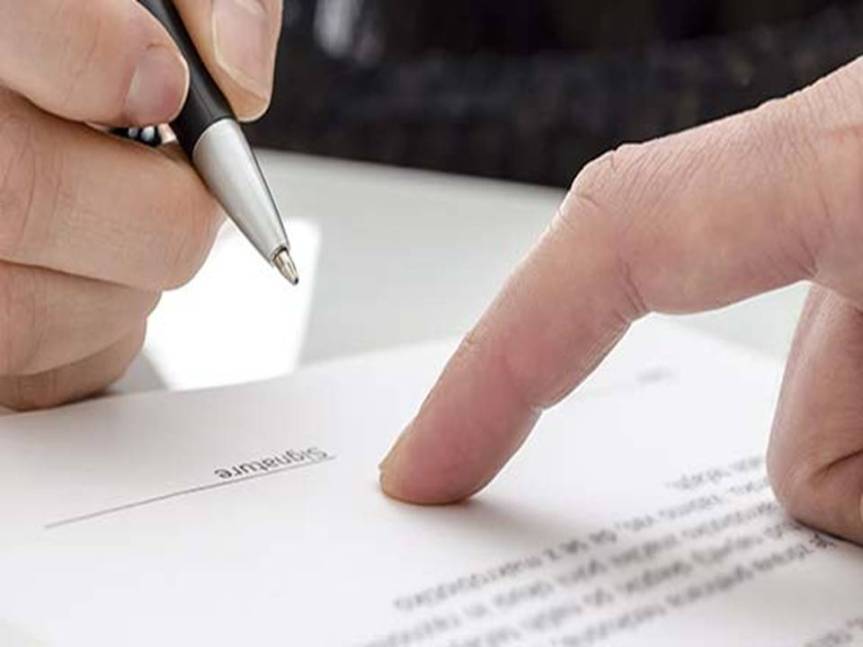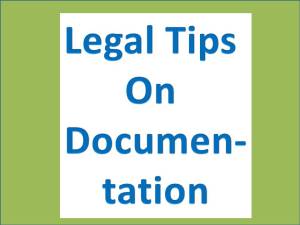
“Ah Lawyer,” you may exclaim, “Why write on an insignificant issue like signing a document? Does the issue of signature matter?”
Well, my answer is this: the issue of signature may look insignificant if compared to the content of the document, but in the eye of the law, signing of document matters and it matters a lot.
Want to know why signing of documents matters and the pitfalls to avoid when signing a document? Then, read on:
Signature represents an acknowledgment or endorsement of the document on which the signature is appended. Documents such as letters, agreements, memoranda, power of attorney and court processes require signing.
Where a document requires signing, then, it must be signed. And failure to sign a document renders such a document irrelevant and inadmissible in court when tendered in evidence. In the Supreme Court case of Omega Bank Nig. Plc. V. OBC Ltd. (2005) 1 SC. (Pt.1) 49, it was held: “It is trite law that a document which is not signed does not have any efficacy in law. It is worthless and worthless document cannot be efficacious,” See also the case of A.G. Abia State v. Agbaranya (1999) 6 NWLR (pt.607) 362 at 367.
How Document is Signed
A document is signed when one places his mark or thumb impression on the document there; the mere typing of a person’s name or initials on a document without more is not sufficient to constitute that person’s signature.
To constitute one’s signature, the person must have affixed what he affirms to be his signature which may either be his marks, signs or simply writing his initials thereon. It requires the person doing something overt on the document which is recognizable by the person doing it. See the case of ACB Plc. V. Hatson Nig. Ltd. (1997) 8 NWLR (pt. 515) page 100, pp. 125-126 paras. H-A.
Need for Caution
As important as signing documents is, it is amazing how many people mistakenly fail to sign documents. When you realize the implication of not signing a document, you would learn to take the issue of signature very seriously.
If, for instance, you are relying on a written contractual agreement to enforce the performance of the contract or to claim damages for breach of contract, and the agreement is not signed by you, the content of the document cannot be enforced against the other party.
The effect of such an unsigned agreement is that there was no written agreement. Note however that oral agreement or agreement by conduct may be inferred and used to determine the matter.
Considering the worthlessness of an unsigned document, it is important that we take the issue of signature seriously. Always remember to sign a document before parting with it.
Equally important is the need to be cautious and not to be cajoled into signing any document presented to you for signing. If the document is a court process, summoning you to appear in court, the wise thing to do is sign the endorsement copy and accept your copy given to you. Failure to do so amounts to contempt of court. After collecting the court process, you can take it to your lawyer who would advice you on the content and what you should do.
If it is not a court process, make sure you read the document thoroughly and understand it before you append your signature thereto. If it is not a document you think you should sign, never sign it even if you are being cajoled, forced or intimidated to sign it.
The person cajoling, intimidating or trying to make you to sign a document under duress may whisper to you that he doesn’t want any person to know. That alone is enough to make you suspect. In fact, it is advisable that you don’t sign such a document until your lawyer peruses it and advises you to sign it.
To be on a safer side, if you have a premonition or you are not sure whether to sign a particular document, consult your lawyer. The rule here is: HE WHO HESITATES IS SAVED. Tell the other party to exercise patience until your lawyer reads the content of the document.
On the whole, when signing the dotted line, you must apply discretion. For as the English people would say, “Discretion is the better part of valour.” The next time you want to sign a document, make sure you look before you leap.

